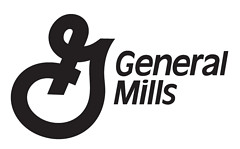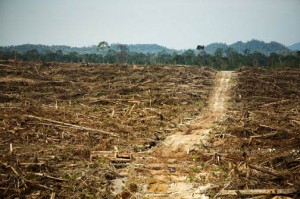
It is with much gratitude, excitement and hope for our world’s remaining forests that I announce the end to Rainforest Action Network’s General Mills palm oil campaign. Our Rainforest Agribusiness Campaign has come a long way in 2010 with your help. Check out some campaign “best moments.”
Eight months ago, 42 activists braved the freezing cold weather of January to unfurl a massive banner reading “Warning: General Mills Destroys Rainforests!” on top of the frozen lake in front of General Mills’ Minneapolis Headquarters. At the time, not a single U.S. food company had a comprehensive palm oil policy.

Today, America’s favorite food company took a crucial step to protect rainforests. General Mills (GIS) released a new palm oil policy that limits the company’s exposure to an increasingly controversial commodity. The company’s new policy, along with previous actions to eliminate problematic suppliers like Sinar Mas Group, puts them in the front of efforts by the U.S. food sector to address deforestation resulting from palm oil. Kraft and Burger King have also announced initial steps to ensure that they are not sourcing ingredients that damage the rainforest.
The new palm oil procurement policy includes specific commitments on critical issues including respect for the rights of Indigenous communities, prevention of further destruction of endangered rainforests and protection of peatlands, a major source of climate change causing emissions from palm oil production. In addition, General Mills has set a goal of “sourcing 100 percent responsible and sustainable palm oil” by 2015, setting a new bar for the American food industry.
See General Mills’ new palm oil policy in it’s entirety.
We hope that General Mills’ actions will serve as a wake-up call for others in the food industry, especially Cargill. America’s largest importer of palm oil, Cargill, has yet to take sufficient action to meet this demand or to clean up its own palm oil supply chain. Although the agribusiness giant has taken initial steps to do so in Europe, it has failed to bring RSPO certified segregated palm oil to the United States, and it continues to source palm oil from some of the worst suppliers in the business.

As a company with some of the most beloved brands in the nation, including Cheerios, Betty Crocker and Hamburger Helper, General Mills’ decision to address deforestation in its supply chain is a major industry signal that unsustainable palm oil expansion practices are a problem that can and should be addressed. RAN will continue working with General Mills on the ongoing implementation of the new policy.